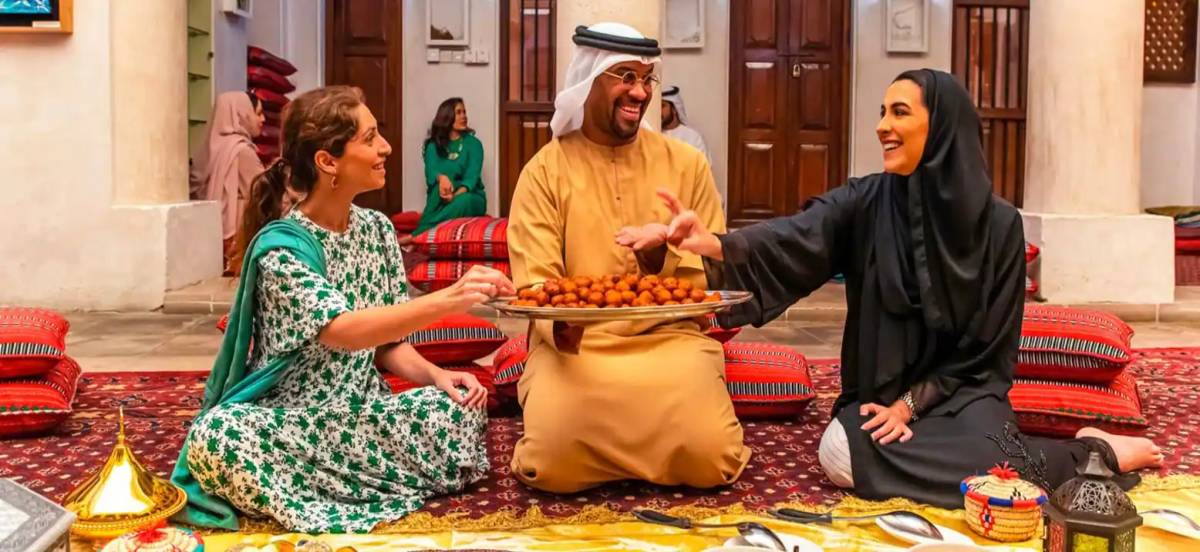Countdown to Ramadan 2025 begins with UAE astronomers’ predictions
The exact date will be confirmed by the final moon sighting

DUBAI: With only four months to go, the anticipation for Ramadan in the UAE is building, as the Emirates Astronomy Society recently announced the likely start date for the holy month.
According to Ibrahim Al Jarwan, Chairman of the Emirates Astronomy Society, “Ramadan will most likely begin on March 1, 2025.”
This forecast is based on the upcoming crescent moon sighting for Jumada Al Awwal, expected on November 3, 2024. However, as tradition holds, the official timing will depend on the moon-sighting committee’s final observation.
When will Ramadan 2025 begin in UAE?
The Islamic calendar is based on the lunar cycle, with Ramadan’s start depending on the sighting of a new crescent moon. This lunar system, being about 11 days shorter than the Gregorian solar calendar, shifts Ramadan earlier each year. The Emirates Astronomy Society calculates moon cycles in advance to forecast Ramadan’s start, but the final date is traditionally confirmed by the UAE’s moon-sighting committee.
Astronomers have also confirmed that the crescent moon for Jumada Al Awwal, the fifth month in the Islamic calendar, will be born at 4:47pm UAE time on November 1, 2024. Its after sunset on November 3 will mark the countdown of just three months to the start of Ramadan.
Why Muslims observe Ramadan
Ramadan is the most sacred month in the Islamic calendar, observed by over 1.8 billion Muslims worldwide. Its significance comes from the fact that this was the month when the Holy Quran was revealed to the Prophet Muhammad (PBUH). Fasting from dawn to dusk throughout Ramadan is one of the Five Pillars of Islam, a core practice fundamental to Islamic faith, along with the profession of faith, prayer, almsgiving, and pilgrimage.
The fasting period, known as sawm, is a time of deep reflection, self-restraint, and spiritual discipline. Muslims refrain from eating, drinking, and other physical needs during the day as a means of purifying the soul, drawing closer to Allah, and increasing empathy toward those who are less fortunate. By abstaining from physical comforts, they are reminded of the many blessings they have and encouraged to give back to their communities.
What do Muslims do during Ramadan?
The daily observances of Ramadan extend beyond fasting. Muslims wake up before dawn for a meal called suhoor, which energises them for the fast ahead.
After the day’s fast ends at sunset, they gather with family and friends for iftar, a meal traditionally opened by eating dates and drinking water, following the practice of the Prophet Muhammad (PBUH). For many, this shared meal is one of the most cherished aspects of Ramadan, creating a sense of unity and connection with loved ones.
Muslims also engage in nightly prayers known as Taraweeh, which are special prayers held in mosques during Ramadan. The Taraweeh prayers provide an opportunity to hear the Quran recited in its entirety over the month.
Charitable giving, known as zakat or sadaqah, is another significant part of Ramadan. Many Muslims give extra generously during this time, aiming to support those in need and foster a community of care.
Ramadan in UAE
The UAE, with its rich multicultural society and vibrant Islamic traditions, offers a unique and memorable Ramadan experience. From reduced working hours to bustling evening markets, the atmosphere during Ramadan in the UAE is truly one-of-a-kind.
In both the public and private sectors, working hours are recued to accommodate those observing the fast.
Like this year, the upcoming Ramadan 2025 will also coincide with the winter season, marking the second consecutive winter Ramadan after 24 years. The shorter days and mild weather create a more comfortable experience for fasting, allowing people to spend more time outdoors and participate in community events.
Traditional iftar tents are set up across the country, where individuals can enjoy a meal and prayer in a shared space. These tents often host a variety of foods, from classic Emirati dishes to international fare, serving as a vibrant focal point for residents and visitors alike.
During the evenings, malls, souks, and restaurants extend their hours, creating a bustling nighttime atmosphere that contrasts with the peaceful, reflective mornings.
Ramadan is also a time when the UAE hosts special religious and cultural events aimed at fostering understanding and community. Charity drives, educational workshops, and Quran recitation contests are just a few examples of the activities designed to enrich residents’ spiritual lives and enhance the Ramadan experience. Public lectures on Islamic history, heritage, and values are frequently held, offering residents and visitors insights into Islamic culture.
Final countdown to Ramadan
As Ramadan 2025 draws near, the Emirates is ready to welcome the season of spiritual renewal with open arms. So whether you’re observing Ramadan, joining in cultural festivities, or simply appreciating the UAE’s vibrant atmosphere, Ramadan 2025 in the Emirates promises a unique, memorable experience for everyone.